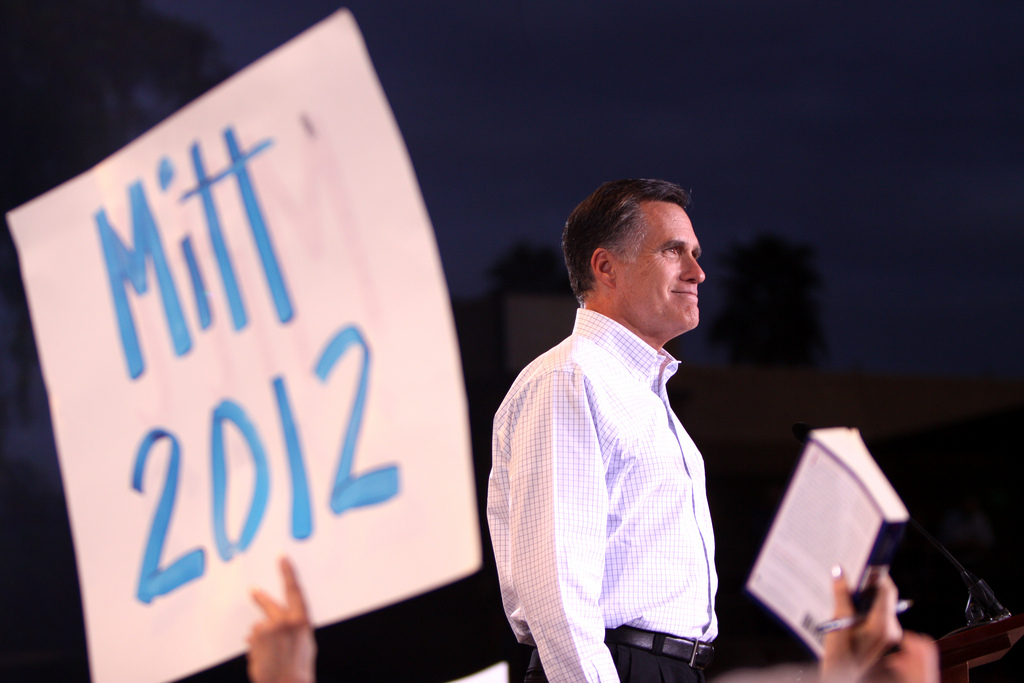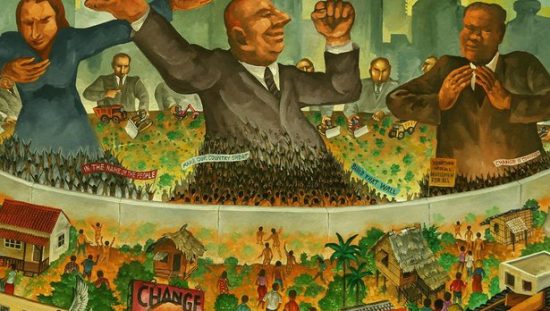If his victory in Arizona and Michigan this past week is any indication, former Massachusetts governor Mitt Romney is poised to win the 2012 Republican Presidential Nomination and face President Obama in the general election. This certainty stems in part from the relatively weak pool of GOP candidates. Each has overtaken or gained momentum on the consistent front-runner Romney only to plummet in the polls in the following weeks. His opponents have frequently erred in public with Ron Paul facing controversy regarding his views on race and homosexuality, Rick Perry blundering in the debates, Herman Cain dropping out after allegations of sexual misconduct, and Newt Gingrich failing to gain the necessary 10,000 signatures to get his name on the Virginia ballot.

While presidential candidates have often made mistakes in the past, this year’s election diminishes the margin of error each candidate is allowed. Unprecedented economic instability, in addition to President Obama’s debate skills, will force voters and the media to put the Republican candidates under a microscope.
With the economy as the top priority for most voters, the economic policy of each individual candidate will be scrutinized and compared to that of the current administration. Each Republican candidate agrees that the President has irresponsibly driven up the federal deficit, hiked up tax rates, forced an economic dependence on China, and created an environment unfriendly for American business owners and entrepreneurs.
Every GOP hopeful proposes a flatter tax system with fewer loopholes and advocates for a decrease in government spending in an effort to revamp American businesses. As a result, there are only slight variances among the candidates in regards to their economic policies, making electability the primary distinction in the GOP race.
Whether or not a candidate can be deemed “electable” depends on a multitude of factors. These include, stances on foreign policy and social issues, the ability to raise money for campaigning and advertising, their appeal to moderate and independent voters, political experience in an executive capacity, and public speaking and debate skills.
Mitt Romney provides the best combination of these attributes, particularly when no viable alternative is available or electable. Ron Paul is considered to be out of the mainstream and holds contentious views on national security. Rick Santorum lacks the money and appeal to a broader voting base to win an election. And Newt Gingrich has a poorly organized campaign as well as personal misgivings from the past.
Romney, by contrast, has raised nearly twice as much as any other Republican candidate. He has refrained from making outlandish comments and, most importantly, maintains solid support from moderate and independent voters. His policies are agreeable to conservatives and moderates alike, ranging from his hawkish foreign policy proposals to more moderate leanings on abortion. Additionally, his candidacy is strengthened by the fact that his campaign is the best organized and that he has significant executive experience from his time spent as both CEO of Bain Capital and Governor of Massachusetts.
This is not to suggest that Romney does not have any weaknesses, seeing as the other candidates still continue to take aim at the former Massachusetts governor in a last resort effort to derail his momentum. His tremendous wealth, accumulated both from his upbringing and his time in the private sector, is an easy target for those weary of the economy, Wall Street greed and disproportionate taxes. Romney’s flip-flopping on the issues could also prove to be problematic. This particularly relates to health care and abortion, in which his positions are constantly questioned. Finally, Governor Romney’s Mormon faith may come to hurt him, as some of the conservative Evangelical base may be hesitant to elect a Mormon president.
That being said, Romney’s shortcomings are not going to prevent his eventual nomination to the presidency. He has already released his tax returns and has noted that he worked a number of humbling odd jobs during his youth and is indeed in touch with the American people. The lack of clarity surrounding some of his social views will also be dispelled as the tone of the general election becomes less concerned with polarizing topics such as abortion and gay marriage. It is also highly unlikely that being a Mormon will hurt Romney’s chances when considering voters overwhelmingly voted for Barack Obama in 2008 – a biracial candidate whose citizenship was questioned until the release of his long-form birth certificate.
Romney undoubtedly has the money and organization to last the marathon of the election cycle, and while the numbers are not currently in his favor, he has led the GOP field for most of the primaries and, at times, has also held advantages over the President in poll comparisons. Moreover, the spending advantage over his Republican counterparts will come into play on March 6, known as Super Tuesday, when 11 states will be up for grabs and resources will be of utmost importance. Furthermore, he won important contests in New Hampshire, Florida, Michigan, Arizona and Nevada while virtually drawing in Iowa, establishing relevancy for his candidacy for the rest of the nomination process.
The question of whether he can defeat President Obama in November will continue to dictate the direction of this election for the next nine months. While his campaign prospects may look bleak as of late, because of Santorum’s recent surge, he still leads the former Pennsylvania Senator by a slim margin. Conventional wisdom seems to indicate that Governor Romney will win the Republican nomination over the course of the next few months. The only remaining question seems to be, can Romney defeat President Obama.


